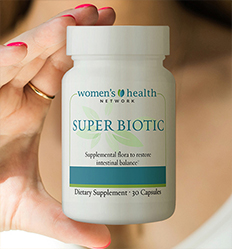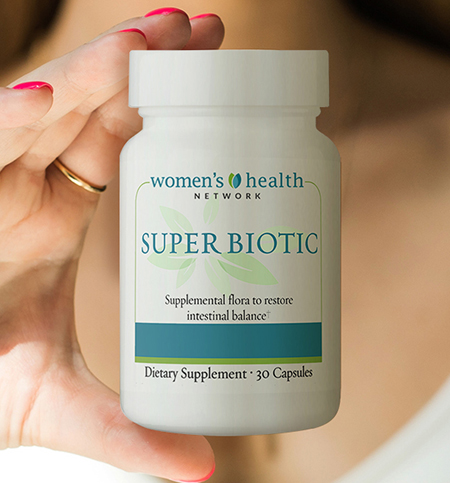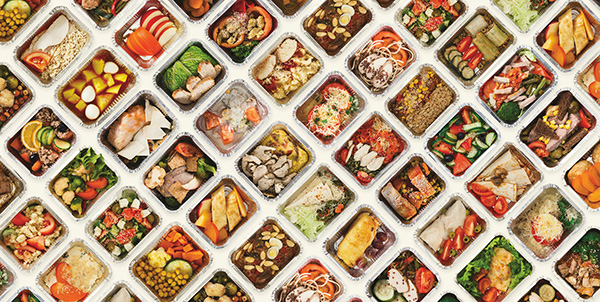Recent science suggests that having the right digestive microbiome, or bacterial environment, has been proven to positively affect — even radically boost — how your body burns calories, stores fat and manages insulin metabolism.
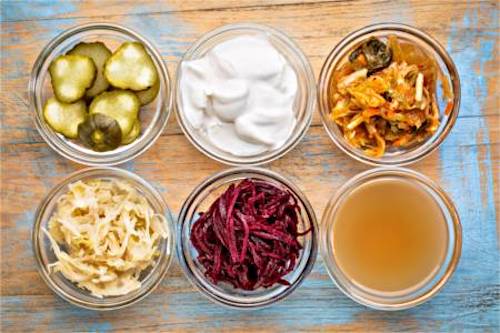
In one startling study, women lost twice as much weight simply by adding probiotics to their traditional weight loss plans. The 24-week study followed 125 overweight people as they dieted for 12 weeks and then followed a 12-week maintenance diet. Women taking a probiotic containing the strain L. rhamnosus lost twice as much weight as the non-probiotic group.
How can a probiotic lead to these dramatic weight loss results? And how can you make probiotics work to help you lose weight?
These little bacteria have surprising power
When it comes to weight loss, your gut flora literally tell your body what to do with the calories you consume. The question is, what messages are they sending?
The trillions of bacteria in your body include bad guys and good guys. (Okay, it’s true that some of them may simply be in the wrong place at the wrong time, or exist in concentrations that are too high.) Research shows that having the incorrect mix of microbes can set you up for obesity and diabetes.
Diversity also counts when it comes to gut bacteria. Science shows that obese people tend to have far fewer types of bacteria than thinner people, who usually have a bigger variety. That’s why you want to have a wide array of different strains. It’s also a good reason to try not to overdo antibiotics, if possible.
From the moment we’re born, our individual bacterial landscapes are already different from one another, and our personal microbiome continues to evolve as we move through life. Lifestyle has an effect, but what you put into your belly has the biggest impact on your digestive bacterial balance.
People who eat lots of processed foods, for example, usually have less gut bacterial diversity. Regularly overeating can upset your microbiome and make it harder to absorb nutrients. Even when you need antibiotics to treat an illness, those medications eradicate a large assortment of bacteria in your gut, including the ones that can help with weight loss.
How gut bacteria affect fat storage and insulin
People who don’t have enough gut bacterial diversity often have more unhealthy visceral fat, which builds up in the worst spot: the belly. Visceral fat is linked to heart disease and metabolic issues. And once it’s made its way into your body, it’s very hard to get rid of.
Belly fat causes the dreaded “muffin top,” but it also leads to much deeper issues and raises your risk of significant health problems. Higher levels of toxin-producing gut bacteria can contribute to insulin resistance. When your body has to produce extra amounts of insulin to deal with an overload of carbs, you can become resistant to insulin. Insulin resistance often leads to a build-up of fat in — you guessed it — the belly.
The bacteria in your gut also influence how food is processed by your body. When you eat, the digestive enzymes that break down food get a big assist from your intestinal bacteria. Some people have gut bacteria that digest fats and carbs better. While that seems like a win, it isn’t if it also makes them soak up even more calories from fats and carbs.
After all, extra, unburned calories end up being packed away on your body as fat.
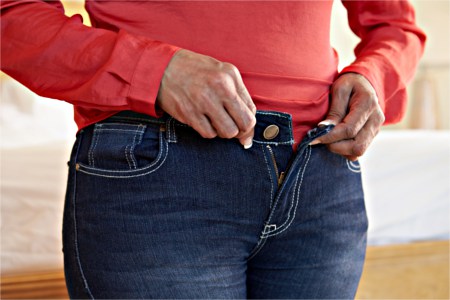
The bottom line: probiotics can help women lose more weight
Probiotics may be what’s missing from weight loss plans that focus only on counting calories and food pyramids. Research now shows that when women on traditional weight loss plans take probiotics, they can lose almost twice as much as women who don’t take them. On top of that, the bigger losers have measurable reductions in “bad” bacteria, which makes it easier to maintain the new, lower weight.
Changing your microbiome for better weight loss should start with probiotics to help add back the bacteria that you might be missing. This can also help crowd out the bad bacteria that sometimes take over your gut. Like any ecology of living organisms, your gut bacteria need proper care and feeding. You want to create an environment where the good bacteria can thrive but the bad bacteria are kept under control.
The food you eat is most important to long-term bacterial balance, though a great probiotic supplement can provide a needed boost. You can harness the power of probiotics for weight loss by cutting back on the foods that feed the bad guys, and getting more of the foods that increase beneficial bacteria:
Don’t eat and drink these
- Breads, sweets, sodas and fruit juice, because they’re low in fiber and high in sugar, and can encourage yeast growth, gas and bloating.
- Processed foods, because they lack fiber and nutrients and contain lots of unhealthy additives.
- Red meat, because, in excessive amounts, it feeds bad bacteria and contains lots of saturated fat.
- Dairy, because it can upset gut flora and cause inflammation and tummy troubles.
- Alcohol, especially in excess, because it irritates the gut lining and can contribute to bacterial imbalances.
Do eat more of these
- Fiber, like vegetables, fruit (especially with skin), beans and lentils, nuts, and whole grains. High-quality fiber is the favorite food of the good bugs, supports the health of the intestinal lining and helps clear your body of unwanted bacteria.
- Prebiotic foods, like onions, garlic, leeks, asparagus, artichokes, chicory and whole grains. These contain soluble fiber that fuels probiotics and is converted into desirable short-chain fatty acids.
- Fermented foods, like yogurt, kefir, raw sauerkraut (not pasteurized), kimchi and kombucha. These cultured foods already contain beneficial bacteria so they’re perfect for supporting your body’s friendly bacteria.
Don’t forget — diet and exercise are still important to losing weight. When you add in probiotic foods and supplements, there’s a much better chance you can increase your weight loss and maintain it. And don’t rush yourself — slow and steady is always best for healthy weight loss.
- https://www.scientificamerican.com/article/how-gut-bacteria-help-make-us-fat-and-thin/
- Ron Sender, Shai Fuchs, and Ron Milo. Revised Estimates for the Number of Human and Bacteria Cells in the Body. PLoS Biol. 2016 Aug; 14(8): e1002533. Published online 2016 Aug 19. doi: 10.1371/journal.pbio.1002533. https://www.ncbi.nlm.nih.gov/pmc/articles/PMC4991899/. Accessed 3.19.17.
- https://time.com/4132550/probiotics-weight-loss-lactobacillus/
- https://time.com/4505831/weight-fat-microbiome/
- https://www.msn.com/en-ca/health/diet/is-the-bacteria-in-your-gut-making-you-fat/ar-BBAp0cK
- https://www.newsweek.com/weight-loss-enemy-within-414483
- Marina Sanchez, Christian Darimont, Vicky Drapeau, Shahram Emady-Azar, Melissa Lepage, Enea Rezzonico, Catherine Ngom-Bru, Bernard Berger, Lionel Philippe, Corinne Ammon-Zuffrey, Patricia Leone, Genevieve Chevrier, Emmanuelle St-Amand, André Marette, Jean Doré, Angelo Tremblay. Effect of Lactobacillus rhamnosus CGMCC1.3724 supplementation on weight loss and maintenance in obese men and women. British Journal of Nutrition, 2013; 1 DOI: 10.1017/S0007114513003875. https://www.ncbi.nlm.nih.gov/pubmed/24299712. Accessed 3.19.18.
- https://ideas.ted.com/can-your-biome-make-you-fat/
- https://www.prevention.com/weight-loss/diets/how-gut-bacteria-makes-you-fat-or-skinny
- https://www.redbookmag.com/body/healthy-eating/advice/g2395/bad-foods-for-gut-health/?slide=1
- https://www.abc.net.au/news/health/2017-03-22/how-does-your-diet-affect-your-gut-bacteria/8374114
- https://www.mensfitness.com/nutrition/what-to-eat/14-prebiotic-foods-you-should-be-eating/slideshow
- https://www.prevention.com/food/prebiotic-vs-probiotic/slide/1
 | Find out how to make your weight loss efforts more successful with a doctor’s view on the best diets for women. |







